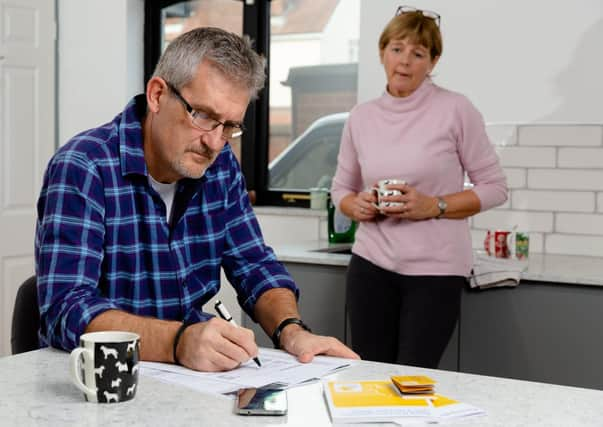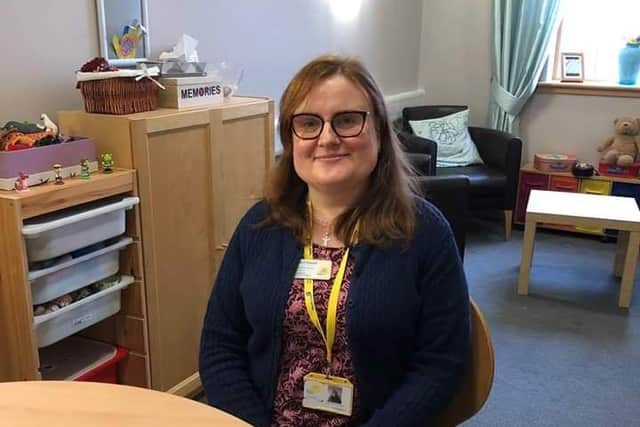A listening ear is required to talk about a loved one’s end of life wishes – Gillian O’Donnell


It is at the front of people’s minds now more than ever, we need to be open in talking about death and dying and making plans. Many of us feel deeply unprepared and distressed when having to face death either for ourselves or our loved ones. It is deeply distressing to see the death toll from coronavirus every day and remember the people behind the statistics.
Yet it can be immensely comforting for families to know that they’ve made the right decision for you when they’re faced with a decision about your care or having to plan a funeral. And they can only know this for sure if you tell them. Having these conversations when we’re healthy may be easier than having them when we, or someone we love, is dying.
Advertisement
Hide AdAdvertisement
Hide AdSome families find they learn things when talking openly at the end of a loved one’s life that would otherwise have disappeared with them. It’s strange how sometimes what seems like a tricky subject can get you talking about happy and important things, and help you feel closer to each other.


This year’s focus for Dying Matters Week was listening. At a time when we are all seeming to listen more, from being glued to the news to hear the latest on coronavirus to exchanging virtual hugs with family and friends, can we really say we are truly listening to each other?
Perhaps you had a conversation with your friend about something difficult recently. Think about how you felt afterwards.
When we really feel that we have been listened to we can feel valued and understood.
Also, when we know that someone is listening to us it can encourage us to talk more freely.
So when talking about death or end of life issues, how can we show that we are listening, I wanted to share some tips to help.
Consider your environment – where are you having the conversation, is it somewhere private and quiet?
Remove any distractions – this includes children, pets, TVs and phones. Think about keeping your phone out of sight and on silent. You want to ensure that the person knows that they have your full attention.
Advertisement
Hide AdAdvertisement
Hide AdGive them time to talk – try not to rush someone and allow them to be silent at times if they need to be. Often people may need a moment to process or to gather their strength.
Reflect back to them – summarise what they have said, for example:“So you’re saying that you want to be cremated and your ashes scattered beside mum’s?” If there are any misunderstandings, then they can be corrected at the time.
Acknowledge that it can be difficult – if you find that you or your loved one are finding it hard then it’s OK to say so. This can be hard as often people want to protect their loved ones but acknowledging it is difficult doesn’t mean that the conversation should stop.
Consider saying something that feels comfortable for you such as: “This is hard to talk about, but I really want to hear what you are saying. Why don’t we get a cup of tea before going any further?”
Summarise and think about the next steps – make sure that have got the details correct. So if your loved one has spoken about making a will and what they would like to leave behind, consider making arrangements to get some legal advice.
It’s easy to feel the reasons we might avoid talking about death are unique to us, and insurmountable. But in reality, many of us are struggling with the same barriers. And a big one is not wanting to make others feel uncomfortable.
By listening to someone talk about their wishes for end of life, you are helping them to make the things that are important to them known and be acknowledged. And ultimately this can help them and their family plan for their death in accordance with what they want.
Don’t underestimate the power of truly listening.
Marie Curie can help you and your family open conversations around death and dying. Visit www.mariecurie.org.uk/talkabout to find ideas and tools to help you get started.
Gillian O’Donnell, Marie Curie Hospice, Glasgow, Bereavement Services Co-ordinator, mariecurie.org.uk
Comments
Want to join the conversation? Please or to comment on this article.